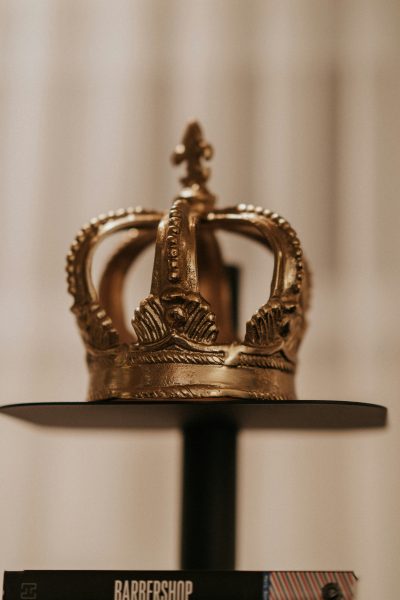Honoring the Crown: The History of Emure’s Obas

The Crowned Legacy: Understanding the Role of Obas in Yoruba Civilization
In the rich cultural landscape of West Africa, the Yoruba people stand out for their enduring systems of governance, deep spiritual worldview, and regal traditions. At the pinnacle of this heritage is the Oba—a royal title meaning “king” in the Yoruba language—used by traditional rulers across Yorubaland, which spans present-day Nigeria, Benin, and Togo.
Yoruba monarchs are more than figureheads; they are custodians of culture, lineage, and divine authority. The title Oba is pre-nominal, placed before the king’s name, and denotes a ruler who is not only a political leader but also a spiritual and ancestral figurehead. Interestingly, the monarch of the historic Kingdom of Benin also bears the title, highlighting the deep ancestral connection between the Yoruba and Edo peoples through Ile-Ife, the cradle of Yoruba civilization.
Within the Yoruba chieftaincy system, the Oba is at the highest rank of an intricate hierarchy that includes noble, religious, and common chiefs. This system is not just ceremonial; it supports governance, dispute resolution, and community leadership, ensuring the continuity of Indigenous institutions even in the modern era. Meanwhile, lesser towns are headed by Baálẹ̀s, local rulers who do not wear the iconic beaded crowns and serve as viceroys under larger kingships.
Yoruba monarchs are symbols of continuity, resilience, and identity. Their legacy, both historical and contemporary, is a testament to the Yoruba people’s deep-rooted respect for structure, tradition, and sacred kingship.
Ooni’s List of Sixteen Ekiti Crowned Obas
Otun (Moba) Kingdom – Oore of Otun, Ijero Kingdom – Ajero of Ijero, Ido (Faboro) Kingdom – Olojudo of Ido, Aramoko Kingdom – Alara of Ara, Ikole (Egbe-Oba) Kingdom – Elekole of Ikole, Ado (Ewi) Kingdom – Ewi of Ado, Oye Kingdom – Oloye of Oye, Efon (Alaaye) Kingdom – Alaaye of Efon, Ogotun Kingdom – Ologotun of Ogotun, Ikere Kingdom – Ogoga of Ikere, Emure Kingdom – Elemure of Emure, Igbara-Odo Kingdom – Owa of Igbara, Oke-Imesi Kingdom – Oloja Oke of Imesi (Owa of Oke Mesi), Obo Kingdom – Owalobo of Obbo, Ilawe Kingdom – Onilawe (Alawe) of Ilawe, Erijiyan Kingdom – Olohan of Erijiyan.
Rulers of Emure Kingdom
The Emure Kingdom traces its royal lineage to Oduduwa, the legendary progenitor of the Yoruba people. The ruling dynasty of Emure stems from Oduduwa’s son Okanbi, whose son Oranmiyan is a central figure in the foundation of several Yoruba kingdoms, including Ife, Oyo, and Benin.
The founder of the Emure Kingdom was Fagbamila Obadudu, a descendant of Oranmiyan through his son Obele. Fagbamila Obadudu established Emure as a royal center and one of the sixteen crowned kingdoms of Ekiti. His sons, Okutuagbonkoji, Abenimota and Adumori, became the progenitors of the two royal houses of Emure. Since the late twentieth century, the kingship of Emure (styled “Elemure“) has alternated between the two latter lineages.
| POSITION | OBA | LINEAGE | REIGN |
| ODUDUWA –PROGENITOR OF YORUBA PEOPLE | |||
| OKANBI (Son of Oduduwa) | |||
| ORANMIYAN (Son of Okanbi) | |||
| OBELE (Son of Oranmiyan) | |||
| FAGBAMILA OBADUDU (Son of Obele and Founder of Emure kingdom) | |||
| 1st Elemure | Okutuagbonkoji | Abenimota | |
| 2nd Elemure | Odunlebiojo | Abenimota | |
| 3rd Elemure | Adumori | Adumori | |
| 4th Elemure | Kango Aladeloye | Abenimota | |
| 5th Elemure | Ati-Iku Opolo | Abenimota | |
| 6th Elemure | Ogunragaboja | Adumori | |
| 7th Elemure | Atobiloye 1 | Abenimota | ? – 1867 |
| 8th Elemure | Aminmin 1 | Adumori | 1867 – 1870 |
| 9th Elemure | Ajirotutu | Adumori | 1870 – 1874 |
| 10th Elemure | Famutimu | Abenimota | 1876 – 1882 |
| 11th Elemure | Ajirotutu (continued) | Adumori | 1882 – 1896 |
| 12th Elemure | Owoso | Adumori | 1896 – 1906 |
| 13th Elemure | Atobatele | Adumori | 1907 – 1924 |
| 14th Elemure | Arosoye | Adumori | 1924 – 1931 |
| 15th Elemure | Odundun Ogunleye 1 | Adumori | 1932 – 1952 |
| 16th Elemure | Aminmin II | Adumori | 1953 – 1963 |
| 17th Elemure | Ogunleye II | Adumori | 1965 – 1974 |
| INTERREGNUM | 1974 – 1983 | ||
| 18th Elemure | Oba Adigun Oshin Omiyomade 1 /Atobiloye II | Abenimota | 1983 – 2006 |
| 19th Elemure | Oba Emmanuel Adeyao Amimin III | Adumori | 2007 – 2024 |
This account is based largely on a 1978 document adopted by the Morgan Commission of Inquiry and upheld by a Supreme Court Judgement in 2000
